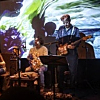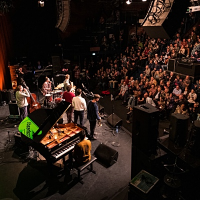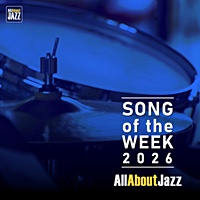Home » Search Center » Results: Harry Carney
Results for "Harry Carney"
Results for pages tagged "Harry Carney"...
Harry Carney

Born:
Harry Carney was a long tenured featured soloist in Duke Ellington's band and the first baritone saxophone soloist in jazz. Carney joined Duke Ellington's Orchestra when he was 17 in 1927 and remained for over 46 years, passing away in 1974 a few months after Ellington. . Born April 1910, Boston, Massachusetts, Carney began his professional musical career at the age of 13, playing clarinet and later the alto and baritone saxophone in Boston bands. Among his childhood friends were Johnny Hodges and Charlie Holmes, with whom he visited New York in 1927. Carney played at the Savoy Ballroom with Fess Williams before joining Duke Ellington, who was about to play in the young musician's home town, when this engagement was over Carney left for a tour with Ellington, who had taken on the role of guardian. The job with Ellington lasted until Duke's death 47 years later
Pepper Adams: Pepper Adams Quintet
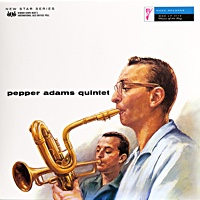
by Joshua Weiner
Formed in 2025, the Gammaut label has upped the ante on deluxe audiophile reissues of classic jazz with their debut release, Pepper Adams Quintet (Mode Records, 1957). Original master tapes used? Check. Careful lacquer cutting at 45 RPM by Bernie Grundman? Check. Top-notch heavy vinyl pressing by Gotta Groove Records housed in a sturdy Stoughton gatefold? ...
WDR Big Band featuring John Goldsby and Bob Mintzer: Big Band Bass
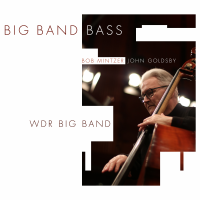
by Artur Moral
What better way to bid farewell to a long, fruitful relationship than with a mutual gift? That is the decision John Goldsby and the extraordinary WDR Big Band made after 30 years of intense collaboration. Extended partnerships are perhaps not too frequent in today's jazz landscape, even in the more conducive orchestral realm: well-known are the ...
Charles Lloyd: Figure In Blue
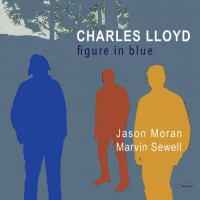
by Jack Kenny
Jazz listeners with long memories will remember that Charles Lloyd was not always as revered as he is today. In the 1960s, his association with the “Summer of Love" and San Francisco's Haight-Ashbury scene led some to question his seriousness, seeing him as flirting with commercialism. Six decades on, that perception has aged away. Lloyd's work ...
Final Recordings of Swing Era Masters: Mary Lou Williams, Artie Shaw, Django Reinhardt and more

by Larry Slater
There are many facets to great artists' careers, from their earliest musical adventures to their final recordings. Some lose their remarkable musical facilities as age, illness or drug abuse takes its toll, while others maintain their mastery until their final performance.The swing era was particularly tough on musicians, with the demands of constant travel ...
Julian Shore: Sub Rosa
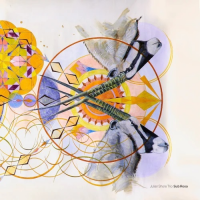
by Jack Kenny
Sub Rosa demonstrates that Julian Shore now plays a key role in the evolution of the jazz piano trio. The jazz piano trio can be seen as the genre's answer to the classical string quartet. Both demand exceptional playing skills, intense listening, and a delicate balance among musicians. However, achieving this quality in a ...
Duke Ellington's Concert of Sacred Music
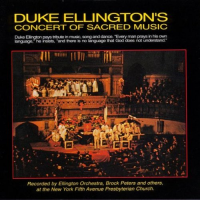
by Chuck Lenatti
In 1964, Dean D.J. Bartlett and the Reverend John S. Yaryan invited Duke Ellington and his orchestra to present a concert to consecrate the renovated Grace Cathedral on Nob Hill in San Francisco during a year-long festival of Grace. At first, Duke demurred. In his autobiography, Music Is My Mistress (Da Capo, 1976), Ellington ...
Gerry Mulligan: Nocturne
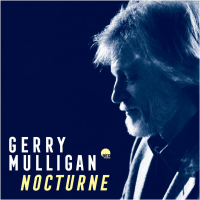
by Jack Kenny
This album might go a small way to setting a record straight. Gerry Mulligan has often been underrated. Despite the critical acclaim and historical significance later attributed to Miles Davis for his groundbreaking work on the Birth of the Cool sessions, a closer examination of the repertoire reveals the profound influence of Mulligan's writing. It was ...
Jack Chambers: Rethinking Duke Ellington
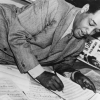
by Jack Kenny
Jack Chambers is professor at the University of Toronto and teacher of music and language. His jazz writings include the prize winning biography Milestones: The Music and Times of Miles Davis (Da Capo Press, 1998) and Bouncin' with Bartok: The Incomplete Works of Richard Twardzik (Mercury PR, 2008). Sweet Thunder: Duke Ellington's Music In Nine Themes ...
A Tone Parallel to Duke Ellington: The Man In The Music

by Jack Kenny
A Tone Parallel to Duke Ellington: The Man In The Music Jack Chambers 259 Pages ISBN: # 9781496855756 University Press Of Mississippi2025 There are rare insights into Duke Ellington in this book from Jack Chambers, his second on Duke Ellington. Chambers has also written important books on Miles Davis ...










